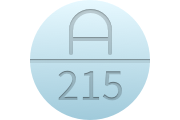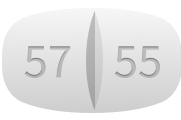Ellen – 0:30
Know the Dangers
Opioids 101
Opioids are a class of drugs naturally found in the opium poppy plant. (Heroin is an opioid.) Some prescription opioids are made from the plant directly and others are made synthetically. In either case, prescription opioids are used to treat moderate to severe pain, often resulting from injuries or surgery.

Codeine
Brand Name: Tylenol® #3* or #4*

Oxycodone
Brand Name: Percocet®*, Oxycontin®

Hydromorphone
Brand Name: Dilaudid®

Oxymorphone
Brand Name: Opana®

Hydrocodone
Brand Name: Vicodin®*, Norco®*

Fentanyl
Brand Name: Duragesic®

Tramadol
Brand Name: Ultram®, Ultracet®*

Methadone
Brand Name: Methadose®
The best cure for opioid addiction is prevention.
It’s a cruel irony. Prescription opioids, developed to manage pain, actually cause more pain than one could imagine. This is the reality of one of our nation’s most tragic epidemics. But we can change this. It takes knowledge and understanding.
• More than 1 in 4 patients prescribed opioids for chronic pain misuse them.
• Addiction to opioids can happen in just five days.
• One in 10 patients who misuse opioids develop an opioid use disorder.
• The Midwest saw opioid overdoses increase 70% from July 2016 to September 2017.
• 80% of those who use heroin first misused prescription opioids.
Do you need opioids?
Pain management is not pain elimination. Some pain is normal, especially for the first 2 to 3 days after surgery. Medication is meant to manage your pain enough to let you do things you need to do to heal: walk, eat, breathe deeply and sleep. It’s important to have realistic expectations about pain and the healing process.
Do the following BEFORE you use prescription opioids:
Talk to your doctor about other pain management options, like ibuprofen or acetaminophen
Learn about other ways to manage pain, like
- Physical Therapy
- Deep Breathing
- Meditation
- Short Walks
- Relaxation
Are you at risk for addiction?
You are at higher risk of developing a dependence or addiction to opioids if you:
Have a history of
- Abusing tobacco, prescription or recreational drugs
- Tobacco use
- Depression, anxiety, or other mood disorders
- Long-term (chronic) pain
Take opioids longer than a few days
Take opioids more often than your surgeon prescribed
About Us
The Substance Free Coalition of Northwest Michigan (SFC) is partnering with agencies and organizations throughout the five-county area of Northwest Michigan to end the opioid epidemic in our communities. Because prescription opioids are so highly addictive, our efforts are focused on prevention of opioid use whenever possible. To learn more or to connect with a member of our team, please email [email protected]


